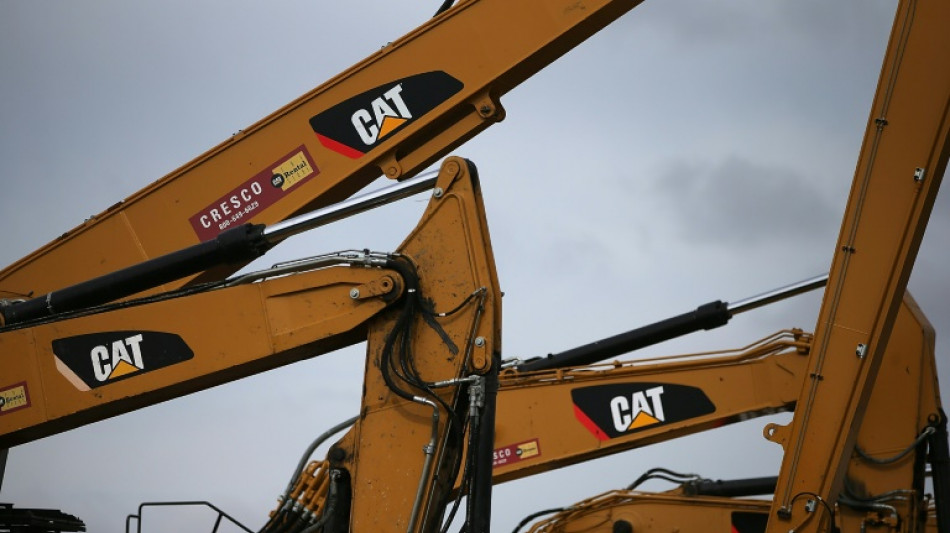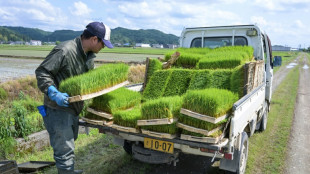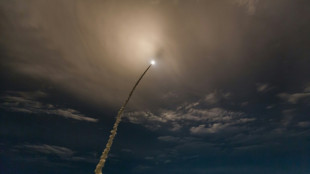

Caterpillar so far not hiking prices to offset tariff hit
Caterpillar has trimmed corporate travel and other discretionary spending to offset a tariff hit, but has no plans to raise prices or overhaul supply chains, executives said Wednesday.
The industrial giant, which reported lower earnings that missed analyst expectations, anticipates a $250-350 million hit in the second quarter from higher levies on steel and other imported items affected by President Donald Trump's myriad tariffs.
Incoming CEO Joe Creed said short-term moves to offset tariff costs also include slowing of some imports to "give us time to see how this fluid situation plays out," he said on a conference call with analysts.
But Creed said longer-term moves such as "significantly moving sourcing or supply chains" involved in its business of industrial equipment manufacturing would depend on whether the company sees the need for a longer-term investment.
A decision to shift supply chains is "going to depend on the product, the situation, where it's coming from, which market we're talking about," Creed said.
The company is not currently considering price increases due to tariffs, partly out of the hope that Trump will reach trade deals that remove the levies, executives said.
Executives are eyeing a potential deal with China, a source of a large portion of Caterpillar imports. The United States has slapped additional tariffs of 145 percent on many products from China in a trade conflict US Treasury Secretary Scott Bessent has called not sustainable.
"We're cautiously optimistic here that there will be some trade deals struck and that the tariff impact will be lower than it is currently," said Jim Umpleby, who will step down as CEO on May 1.
In the quarter ending March 31, Caterpillar reported profits of $2.0 billion, down 30 percent from the year-ago period. Revenues fell 10 percent to $14.2 billion.
Shares of Caterpillar fell 0.7 percent in afternoon trading.
E.Fournier--MJ



